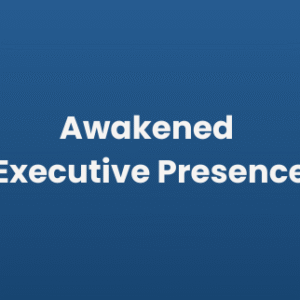In the world of leadership and coaching, one can’t help but notice the noise of numbers: the “7-figure coach“, the “8-figure entrepreneur“, the leader who speaks of the “$100k investment” they made in their personal development.
We often see these numbers as proof of success on a universal scorecard. But this is based on a total misunderstanding.
Money has no inherent meaning. Its value is a story we’ve all agreed to believe, and the rules of that story are in constant flux. As I’ve explored in previous articles, true value is always subjective and determined by the receiver. If that is true, then money—as a symbol of that value—cannot be an objective measure of anything real.
To have a sane relationship with it, we must first see the money game for what it is.
The value of money is objectively relative. A dollar in Goa is not the same as a dollar in New York. Its real-world power is constantly being shaped by geopolitics—the rise of new world orders, the long shadow of a colonial past, and the instability of wars.
Its value is manipulated by economic forces like fiat currency printing and a nation’s status as a global reserve currency. It is fundamentally tied to the physical world through the availability of natural resources and the threat of ecological crises like famines.
The number on the screen might be static, but the reality it represents is not.
The value of money is subjectively relative. The next $5,000 has a profoundly different psychological meaning for a person who started with $10,000 versus someone who started with $100,000. Our personal history dictates the emotional weight of a number, indicating that the value we perceive is a projection of our own story.
The unawakened leader has a lot of stories and meanings associated with money. These money stories are vanity metrics at best and an expression of ignorance at worst.
Because money is never built for any reason other than one simple purpose: To facilitate the ease of exchange of goods and services. Nothing more, nothing less. When we make it mean anything different than that, we suffer the consequences of misunderstanding the nature of money.
A New Relationship with Money
When a leader sees the malleability of money, their first step is often to play the game more consciously, creating new stories to justify the exchange. One common narrative I’ve observed is this:
Receiving money is framed not as an act of ego or a status symbol, but as a “commitment device” that invites a client to meet the work with equal seriousness.
Giving money is framed not as a prestige issue but as “costly signaling to oneself,” a declaration of your own commitment by creating “skin in the game.”
Sometimes, a second, more refined story emerges when we spiritualize money, calling it an “energy exchange” or an “act of honoring value.”
Both of these stories seem logical and might initially look useful. Except, they are also just stories, just like the other not so useful stories of how ‘money is evil’, or how your ‘earning is a measure of your self-worth.’
This is still a way of playing the game, albeit a more deliberate and skillful one. Because when you understand the true nature of money, any story – useful or otherwise – that you make up about it is in a way an act of lying to yourself. You have the freedom to play these games if you so desire.
The truly awakened perspective I invite my clients to explore is even simpler, and perhaps more radical. It’s to stop telling any story about it at all.
From this final viewpoint, the financial exchange is neither a cynical strategy nor a sacred expression. It is simply a functional reality.
Charging for your work is simply a practical exchange that allows the work to be sustained. A baker charges for bread not as an expression of his self-worth, but because it is the mechanism that allows him to continue baking.
Investing in yourself is not a grand act of devotion; it is a practical decision to acquire a necessary tool, experience or service. You pay the fee for the same reason you pay for electricity – it offers something that you desire and therefore value in return.
Money simply functions as a medium to facilitate this exchange. In this view, money is fully stripped of any outsourced meaning, whether from the material ego or from the spiritual ego.
It is returned to its rightful place: a simple, neutral tool.
The noisy conversation about high-figure earnings or high-ticket investments becomes irrelevant. The number itself, whether large or small, earned or spent, is not a measure of anything, much less, success.
It is simply a reflection of a mutually agreed upon exchange.




